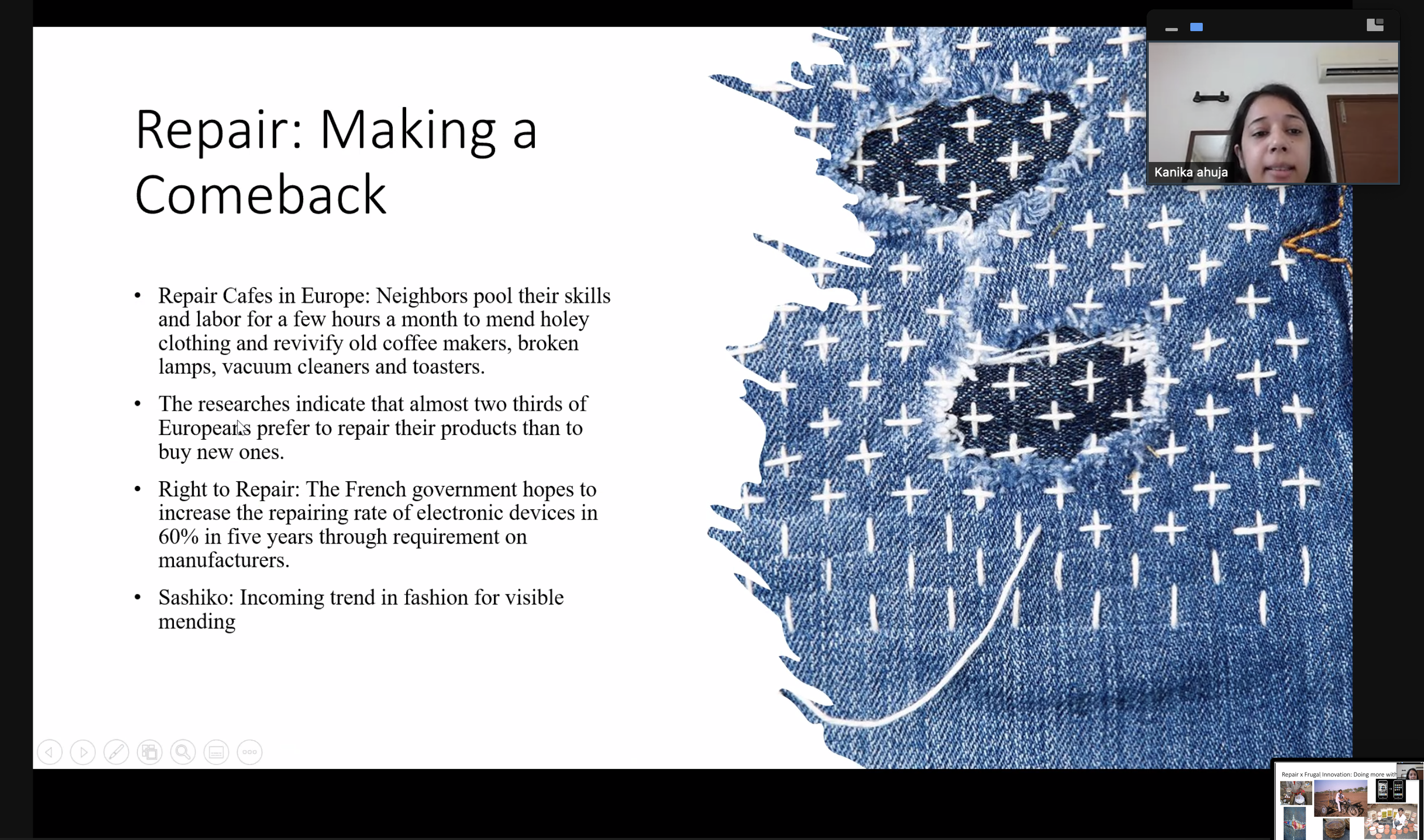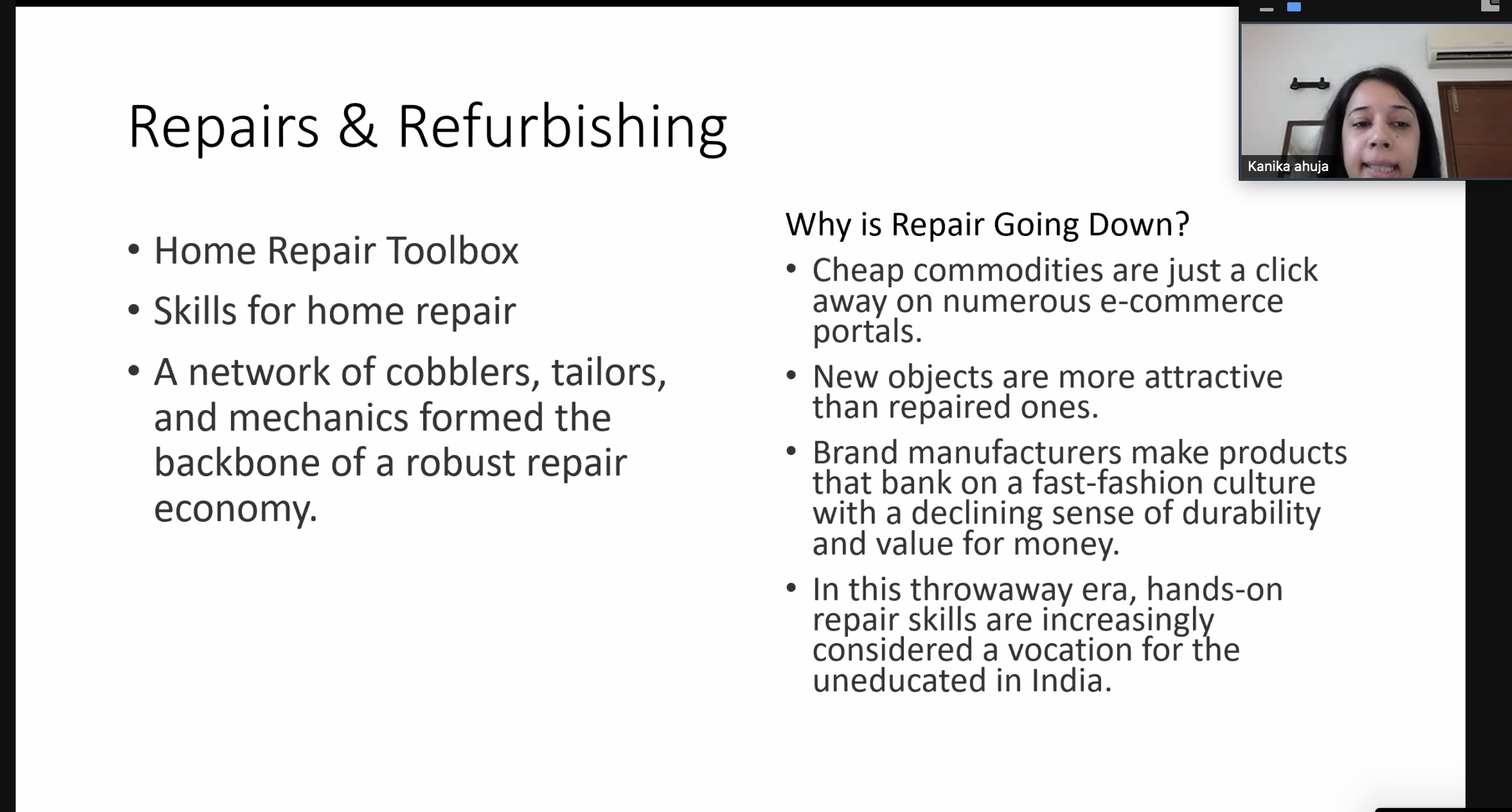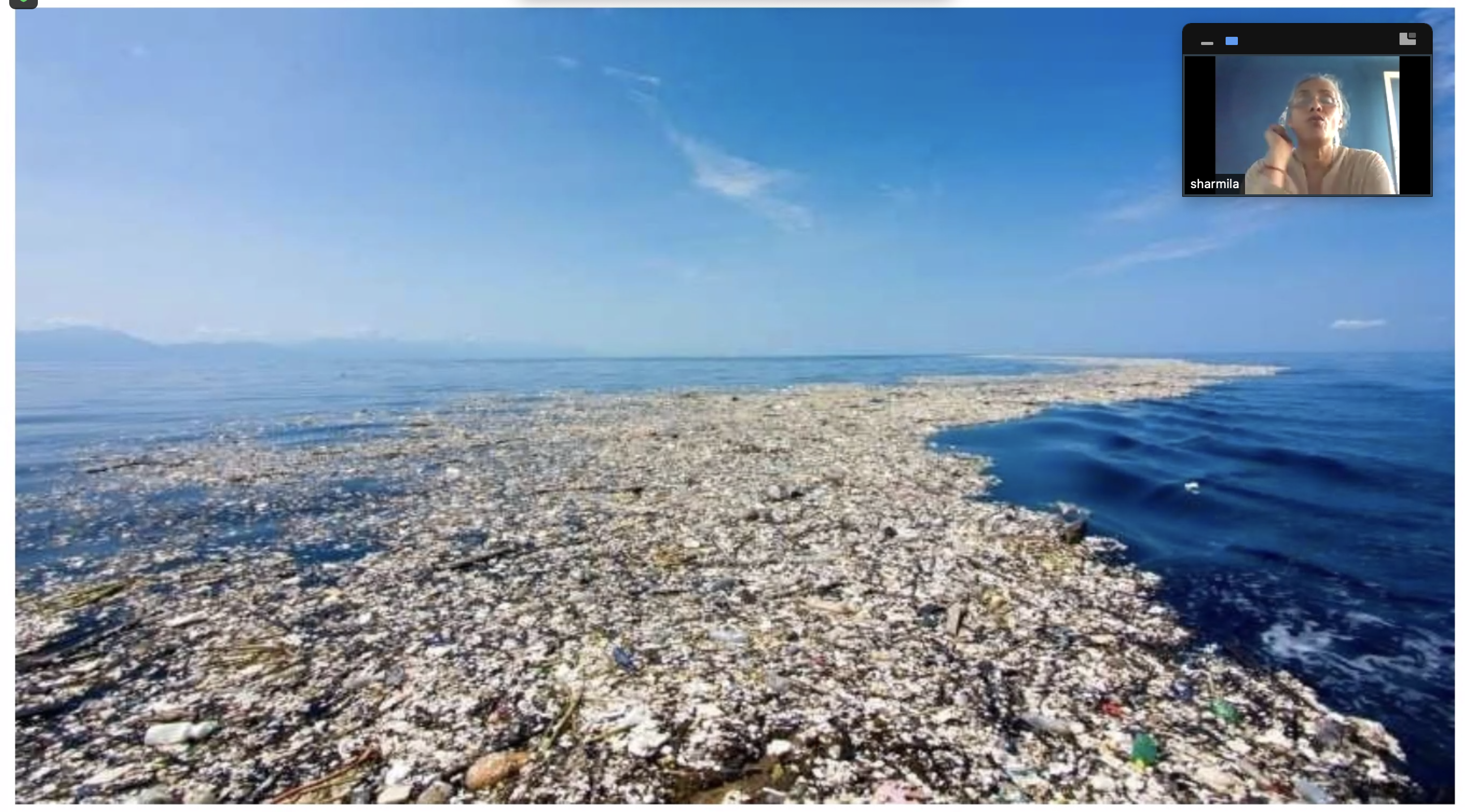The first of a two part workshop open to students from the Department of Fine Arts, Shiv Nadar University. The workshop focuses on reconsidering, fading cultures of repair in New Delhi and India by raising awareness and discussing with students, what values lie behind the act of repairing. Emphasises will be placed on understanding the importance of the care and repair of everyday objects, as well as different perspectives of repair and what it means. The workshop also looks to exploring how a “Right to Repair” campaign could be established in India.
Facilitators
Kanika Ahuja armed with an engineering and MBA degree, Kanika pursued her passion in the development field, joining Conserve India, a social enterprise dedicated to sustainability in 2016. She is now the Executive Director at Conserve and the CEO of a sustainable fashion brand, LIFAFFA. She has built a proprietary process to convert single-use plastics to a leather-like fabric and her organization uses this fabric to make fashion products which are then sold in Western markets. She empowers waste pickers and artisans and ensures a job of dignity for them. She is a certified trainer for Livelihoods creation by UNHCR and ILO, a Mentor for Atal Tinkering Labs, NITI Aayog, Government of India and a Fair Trade Ambassador by the World Fair Trade Organization.
Sharmila Samant is a visual artist who works across a variety of media and forms including installations, performance and photography. Globalisation, identity and consumer culture are issues central to her works, which often involve working with activist groups and communities, particularly those who are marginalised, addressing in turn ideas relating to exchange, accessibility and authorship. In 1998 Sharmila co-founded and ran for several years the Mumbai-based art collective Open Circle, which aimed to create a platform for meaningful dialogue among artists on an intercultural level, who were interested in engaging with contemporary sociopolitical issues via an integration of theory and practice. In 2011 she was invited as an advisor to Art1st Foundation, an organisation that works towards strengthening visual literacy, creative skills, cultural awareness and art pedagogy for children and educators. Since 2013, Sharmila has sat on the academic council of the G5A Foundation for contemporary culture in Mumbai, which supports contemporary art and culture, good governance and sustainability. She also sits on the advisory body of the culture initiative Arthshila, Patna. Sharmila’s installations and video works have been part of many prominent exhibitions in biennales, museums, artist-led spaces and alternative venues in India and abroad. In 2013 she was invited to become a core faculty member at the Department of Art, Design and Performance of the Shiv Nadar University, where she continues to work and run the Master in Fine Arts programme.
Registration Details
Open to students only.
Agenda
4:30 – 4:40: Welcome, Satish Sinha, Toxics Links
4:40 -5:00: Sharmila Samant, Department of Art, Design and Performance of the Shiv Nadar University
5:00- 5:15 : Kanika Ahuja, Conserve India
5:15- 5:45: Repair Activity, Kanika Ahuja, Conserve India
5:45- 6:00 : Declaration submission / Open discussion
In advance of the workshop please bring three photos images of repaired textiles with you. This can be a mix of a professional, DIY/self-repair or a failed repair objects or textiles.
What Happened
The workshop opened with Satish, welcoming everyone.
Satish followed up by providing an overview of the TALES OF CARE AND REPAIR project and its importance in the context of India. This was linked with the presence of informal and formal repair practitioners in India and their ecosystem. Satish then introduced and welcomed the guest speaker Ms Sharmila Samant and workshop expert Ms Kanika Ahuja.
Sharmila shared her views on repair and explained how the culture of repair in India was vibrant earlier and its decline. Sharmila discussed about repair from an artistic perspective and connected the practice of repair with art. Sharmila emphasized on the current practices adopted by artists and hoped that rather than making new things if artists could look towards broken, disgusting, or irremediable objects as a source of inspiration.
The workshop was then handed over to Kanika, who gave a brief introduction to her project and how their organization are reusing plastics and turning them into useful products. Kanika then explained the basic concepts of repair and how in India the concept of Jugaad (makeshift repair) is very well known and practised. Then as a group activity, Kanika presented a few questions for all the participants which mainly focused on.
- What can we repair at home?
- Do you know how to repair these items?
- Do you think we should learn how to repair them?
- Do you think repair is a craft?
- An experience of something you repaired at home?
- Your thoughts on repair?
Few participants answered it live and few used the chatbox, the activity was quite useful to understand how students perceived the practice of repairing and how they have personally repaired objects at home. The workshop concluded with a round of questions and answers which were addressed by both our panellist and host.



